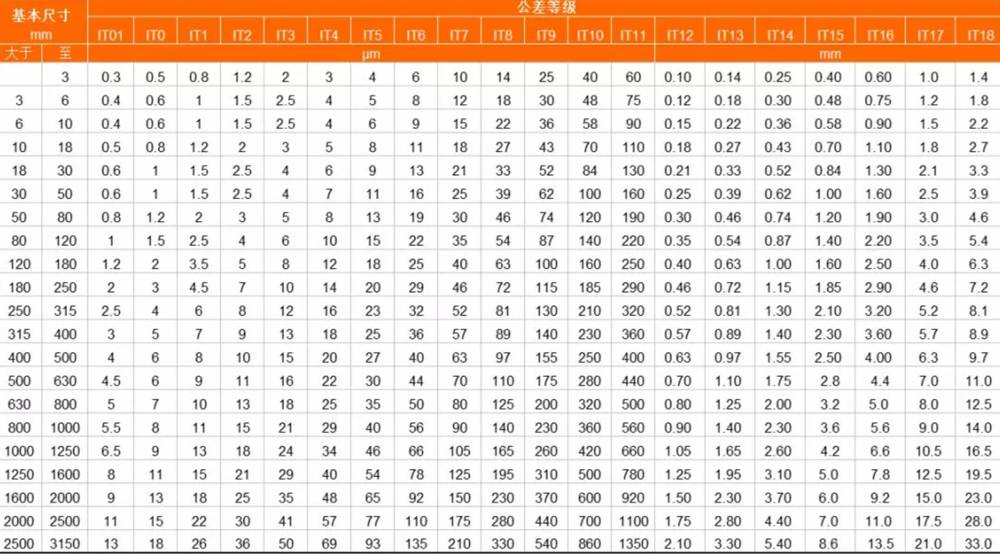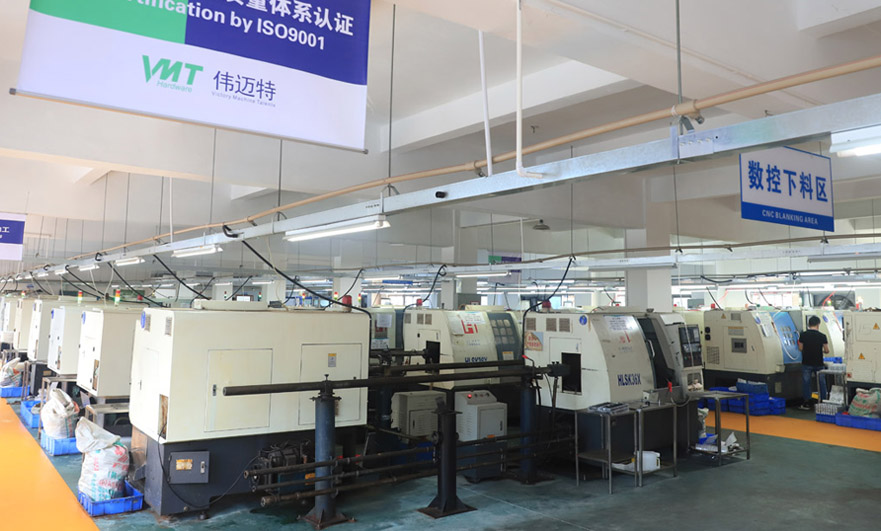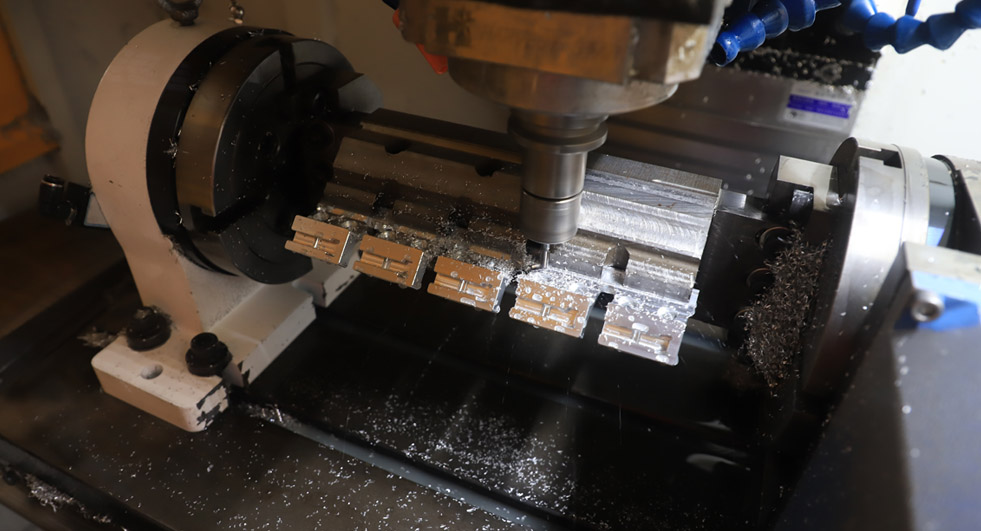15 years one-stop China custom CNC machining parts factory

Hey there I’m VMT Sam!
With 25 years of CNC machining experience we are committed to helping clients overcome 10000 complex part-processing challenges all to contribute to a better life through intelligent manufacturing. Contact us now
 491 |
Published by VMT at Nov 07 2022
491 |
Published by VMT at Nov 07 2022
Dealing with CNC machining every day, I believe you must have a deep impression of CNC machining accuracy, but how much do you know about "tolerance level"? Tolerance grade refers to the grade that determines the degree of dimensional accuracy. The national standard stipulates that it is divided into 20 grades, from IT01, IT0, IT1, IT2 to IT18. The larger the value), the less difficult the CNC machining is.
According to different functions of product parts, the CNC machining accuracy that needs to be achieved is different, and the selected CNC machining form and CNC machining technology are also different. This article introduces the CNC machining accuracy that can be achieved by several common CNC machining forms such as turning, milling, planing, grinding, drilling, and boring.
IT Standard Tolerance Class Table

Note: When the basic size is less than 1mm, there is no IT14 to IT18
1. CNC Turning
The workpiece rotates, and the turning tool moves in a straight line or a curve in the plane. CNC turning is generally carried out on a lathe to process the inner and outer cylindrical surfaces, end surfaces, conical surfaces, forming surfaces and threads of the workpiece.
CNC turning machining accuracy is generally IT8~IT7, and the surface roughness is 1.6~0.8μm.
1) Rough turning strives to use a large depth of cut and large feed to improve turning efficiency without reducing the cutting speed, but the machining accuracy can only reach IT11, and the surface roughness is Rα20~10μm.
2) Semi-finishing and finishing should use high-speed and small feed and cutting depth as much as possible. The CNC machining accuracy can reach IT10~IT7, and the surface roughness is Rα10~0.16μm.
3) High-speed precision turning of non-ferrous metal parts with finely researched diamond turning tools on a high-precision lathe can make the machining accuracy reach IT7~IT5, and the surface roughness is Rα0.04~0.01μm. This kind of turning is called "mirror turning".

CNC milling refers to the use of rotating multi-blade tools to cut workpieces and is a highly efficient CNC machining method. It is suitable for CNC machining of planes, grooves, various forming surfaces (such as splines, gears and threads) and special shapes of molds. According to the same or opposite direction of the main movement speed and the workpiece feed direction during CNC milling, it is divided into down milling and up milling.
The machining accuracy of CNC milling can generally reach IT8~IT7, and the surface roughness is 6.3~1.6μm.
1) The machining accuracy during rough milling is IT11~IT13, and the surface roughness is 5~20μm.
2) The machining accuracy of semi-finish milling is IT8~IT11, and the surface roughness is 2.5~10μm.
3) The machining accuracy of fine milling is IT16~IT8, and the surface roughness is 0.63~5μm.

CNC planing is a cutting method in which a planer is used to make a horizontal relative linear reciprocating motion on the workpiece, which is mainly used for the shape processing of parts.
The machining accuracy of CNC planing can generally reach IT9~IT7, and the surface roughness is Ra6.3~1.6μm.
1) The rough planing accuracy can reach IT12~IT11, and the surface roughness is 25~12.5μm.
2) The semi-finishing machining accuracy can reach IT10~IT9, and the surface roughness is 6.2~3.2μm.
3) The finishing precision can reach IT8~IT7, and the surface roughness is 3.2~1.6μm.
Grinding refers to a CNC machining method that uses abrasives and abrasive tools to remove excess material on a workpiece. It belongs to finishing and is widely used in the mechanical CNC machining and manufacturing industry.
Grinding is usually used for semi-finishing and finishing, and the accuracy can reach IT8~IT5 or even higher, and the surface roughness is generally 1.25~0.16μm.
1) The surface roughness of precision grinding is 0.16~0.04μm.
2) The surface roughness of ultra-precision grinding is 0.04~0.01μm.
3) The surface roughness of mirror grinding can reach below 0.01μm.
Drilling is a basic method of hole making. Drilling is often carried out on drilling machines and lathes, and can also be carried out on boring machines or milling machines.
The machining accuracy of drilling is low, generally only reaching IT10, and the surface roughness is generally 12.5~6.3 μm. After drilling, reaming and reaming are often used for semi-finishing and finishing.
Boring is an inner diameter cutting process in which a tool is used to enlarge a hole or other circular profile, and its applications generally range from semi-roughing to finishing. The tool used is usually a single-edged boring tool (called a boring bar).
1) The boring accuracy of steel materials can generally reach IT9~IT7, and the surface roughness is 2.5~0.16μm.
2) The machining accuracy of precision boring can reach IT7~IT6, and the surface roughness is 0.63~0.08μm.
CNC machining accuracy refers to the degree to which the actual geometric parameters (size, shape and position) of the part after machining are consistent with the ideal geometric parameters. The difference between them is called CNC machining error. The size of the machining error reflects the level of CNC machining accuracy. The larger the error, the lower the machining accuracy, and the smaller the error, the higher the machining accuracy. VMT CNC machining company will optimize the structure and process of complex and easily deformed parts, which can save costs for customers.
The table below is more intuitive!
| processing methods | IT level | |||||||||||||||
| 1 | 2 | 3 | 4 | 5 | 6 | 7 | 8 | 9 | 10 | 11 | 12 | 13 | 14 | 15 | 16 | |
| grind | / | / | / | / | / | |||||||||||
| Honing | / | / | / | / | ||||||||||||
| round grinding | / | / | / | / | ||||||||||||
| Flat grinding | / | / | / | / | ||||||||||||
| Diamond Grinding | / | / | / | |||||||||||||
| Diamond boring | / | / | / | |||||||||||||
| Broaching | / | / | / | |||||||||||||
| dumpling hole | / | / | / | / | / | |||||||||||
| turning | / | / | / | / | / | |||||||||||
| boring | / | / | / | / | / | |||||||||||
| Milling | / | / | / | / | ||||||||||||
| planer | / | / | ||||||||||||||
| drilling | / | / | / | / | ||||||||||||
| rolling, extruding | / | / | ||||||||||||||
| stamping | / | / | / | / | / | |||||||||||
| die casting | / | / | / | / | ||||||||||||
| Powder metallurgy forming | / | / | / | / | ||||||||||||
| powder metallurgy casting | / | / | / | / | ||||||||||||
| Sand casting, gas cutting | / | / | ||||||||||||||
| forging | / | / | ||||||||||||||
Ready To Start Your Next Project?
Get Instant Quote

Request a Free Quote
Send us a message if you have any questions or request a quote. We will get back to you ASAP!